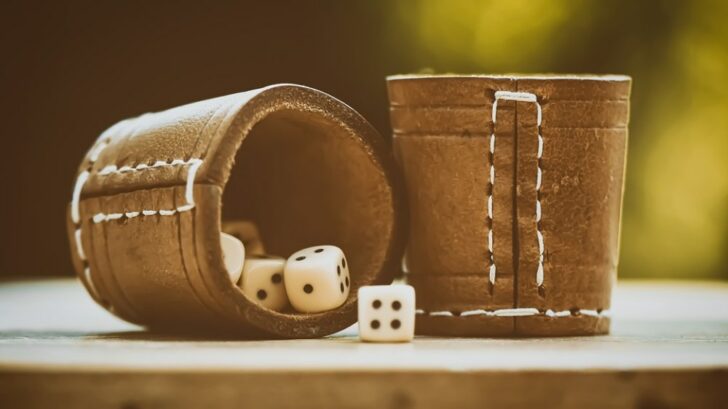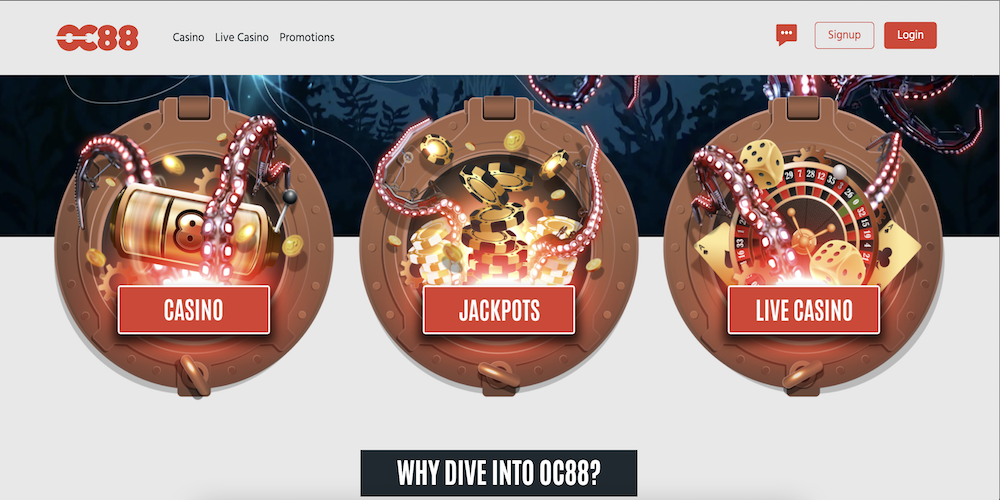Ancient Roman Gambling And Its Effects On Roman Society

Ancient Roman Gambling
The famous phrase “Alea iacta est,” uttered by Caesar as he crossed the Rubicon, may be read metaphorically as the beginning of a game. One in which the state served as the object of the stakes. The word “bones” is “alea.” Later, this term was to describe all Ancient Roman gambling activities. The ancient Romans spent a lot of their free time engaging in this kind of recreation. It was the emotional component was primarily responsible for their popularity. A man experienced both exhilaration and terror while playing the games due to the possibility of winning or losing. Adrenaline levels rose as a result of the risk factor, which was addicting because it made daily life significantly more interesting.
We guess it was no different than a modern gambler playing at an online casino like 22Bet Casino. They too are hoping to win the jackpot online. Due to this, gaming was very popular in ancient Rome. Today at Jackpotfindercom, we take a trip back to Ancient Rome to see how the leaders and their subjects enjoyed gambling games.
Everyone Could Play (Except For Woman)
Everyone loved to play gambling games as a sort of entertainment. In fact, they were performed by aristocrats and commoners. Also, older people with lots of free time, and younger people after ending work. As well as kids who were hiding their Ancient Roman gambling activities. You have to keep in mind that gambling was only permitted for men. However, at the Bona Dea festival, female musicians were welcome. They had fun both indoors and outside. In public areas, such as in front of basilicas and under porticoes, engraved gaming boards have been discovered. In addition to the Forum Romanum, the Basilica of Juliet, the Colosseum, the entrances to historic temples, and even the homes of Roman vestals, they are still visible today.
Roman Soldiers Loved To Gamble
Ancient Roman gambling games were likewise impossible to resist among the military. The barracks frequently included historical reminders of games. You can imagine the forerunner for contemporary casinos being the old Roman taverns. They were transformed into special spaces where players could wager and play at leisure. There, people gathered for meals as well as for an adrenaline rush from placing bets. From public spaces to residences, gambling made its impression across all of Roman society. It provided entertainment for the whole community, particularly at gatherings and banquets where the “arbiter bibendi,” as Horace refers to him, ensuring that the game regulations were followed.
Roman Dice Games

Ancient dice were made from the little metatarsal bones of ungulates (sheep, donkeys). On their four faces, are the numbers 1, 3, 4, and 6. You’ll need four of these dice to play in a deck. And three of them in the Tesserae game. However, you could also find cube-shaped bones composed of marble, gold, amber, or bronze.
Just like in a modern online casino like 22Bet Casino, a wide variety of dice games were available for wagering. The game “tabula lusoria,” whose board was an eight-part circular, was one of many well-known board games. Each player has three pieces, which he attempts to place next to one another, diagonally, or around the outside. The board for the “duodecim scripta” game has two rows of twelve fields each. Each participant had 15 pawns. In the game, you move three pawns and toss three dice. Passing every piece on the board was one of the game’s jackpot winning strategies. Its rules were comparable to those of modern-day backgammon.
Play Slots Online at the 22BET Casino
Ancient Roman Gambling: Latrunculi
“Latrunculi,” or its other name, the “thievery game,” was the favorite of Roman troops and hence the most common gambling game at the time. Each participant has twelve pebbles, and the game uses a 12 x 8 board. Due to the lack of surviving texts containing its description, today, no one really understands the rules fully. Some compare it to contemporary checkers or chess. Sometimes you can see humorous inscriptions about Ancient Roman gambling as decorations on old game boards.
The Latin phrase “par et impar,” denotes whether someone was holding an even or an odd amount of nuts in their hand. For example. “Capita aut Navia,” the modern version of “heads or tails,” was also highly popular. Roman coinage featured the deity’s head (Capita) on the obverse and the ship’s bow (Navia) on the reverse, thus the name of the coin. However, dice continued to be the most widely played casino game in Rome.
In the hands or in a unique cup known as a “frittillus,” you can shake the bones together. The scoring system is not entirely clear today. But we do know that the best throw is the “Venus throw” and the worst is the “Dog Throw” (still today, the expression “plays like a dog” describes a bad player).
Ancient Roman Gambling: Tabula lusoria

“Tabula lusoria” was a board game with an eight-part circle as the playing area. Each player receives three pieces, which they then attempt to arrange next to one another, either diagonally, or along the edge. Because of the popularity of these games, it was thought that gambling posed a significant social and moral hazard. Everyone linked this form of entertainment with disgrace. But despite the negative stigma associated with it, even many in positions of authority fell prey to gambling’s allure. According to Suetonius, Octavian Augustus loved games so much that he invited his friends and family to a game with a donation of 250 deniers apiece.
Ancient Roman Leaders And Their Love Of Gambling
However, in his letters, he bemoaned his losses as a result of gambling. Nero also enjoyed gambling and was well-known for doing so. He allegedly accumulated debts of 400,000 sesterces. Claudius, however, had a specially modified dice table in his personal carriage to amuse himself while traveling. He even allegedly wrote a book outlining its tenets. Seneca depicted him in hell, condemned to play dice games with a bottomless cup forever, in a mockery of the ruler’s demise. Commodus was yet another compulsive gambler. He had the idea to open a casino in the palace when he became aware of the gaps in his wealth. And in order to pay off his gambling debts, the insane emperor Caligula seized the property of a number of his soldiers.
Roman Civic Society Wakes Up To The Negative Affects Of Gambling

If we consider just how aggressively the government set about to address the issue and start to legally forbid or regulate gambling and betting, the extent of the problem must have been enormous. The danger that addiction posed was the main cause. They say that a man has lost control of himself while playing the game as a result of the ecstasy of success and the misery of defeat. This is more apparent if all of your assets were at risk. This damaged his reputation, good name, and dignity as a citizen of Rome. It jeopardized the social class he belonged to. Losing frequently resulted in a change in status. They could see this as endangering Rome’s strict social order.
Ancient Roman gambling also went against conventional morality. The outcome was a pervasive yet steady social decline. This saw the introduction of a new anti-gambling law similar to those found across Italy today.
Morals Are Weaker Than Vices
The entertainment industry was doing well despite the legislative ban on gambling and its social stigma. There have been countless archaeological discoveries that show the law was not effective. So we can now see that Ancient Roman gambling remained widely popular. The legislation was powerless to eradicate the wholly new moral code that has already established itself in the culture. Unfortunately, it was based on greed, contempt for money, and extravagance. There didn’t seem to be any desire in society to oppose gambling because it was more alluring. In this respect, nothing has changed over all these years. So if you’re playing jackpot games in the hope of increasing your jackpot winning chances, you’re simply following a path laid down in Roman times.
Click here to visit the 22BET Casino to discover a brand new world of online gambling














